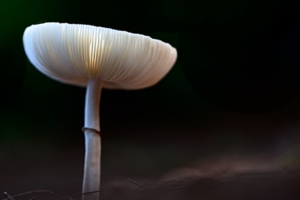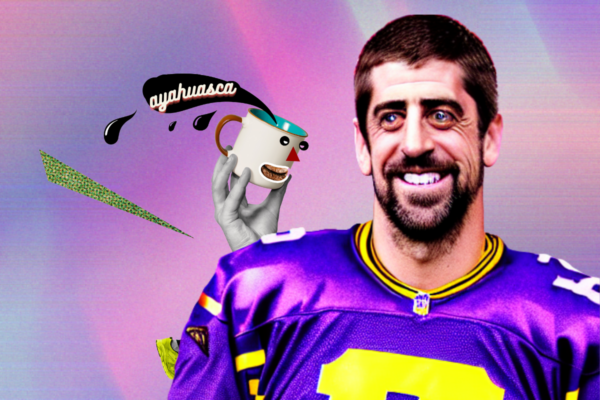
When it comes to the psychedelic medicines industry, a core tension between stakeholders has been the role of psychedelic patents.
Their supporters argue that they are necessary to protect innovation and give companies the stability they need to fund projects costing tens of millions of dollars. Their detractors don’t necessarily disagree with the philosophy of patents, but rather they believe that certain companies are abusing the system by applying for patents on molecules, technologies, and practices that have been common in the psychedelic culture for decades. They believe that this “patent trolling” will limit competition and ultimately innovation in the psychedelics sector.
Recently this debate has picked up steam with two major psychedelic patent developments. First, Compass Pathways (Nasdaq: CMPS) won a court challenge against their patents on Comp 360. The company successfully argued that their psilocybin molecule was in fact a novel invention that had never existed before, and therefore was deserving of a patent that would give Compass exclusive rights to it. This decision was final and can not be appealed.
A couple of days later, news broke that a MindMed (Nasdaq: MNMD, NEO: MMED) collaborator had been granted a patent on a “composition comprising an empathogen/entactogen and a psychedelic in the same single oral dosage form.” In other words, the patented “invention” was the combination of substances such as MDMA and LSD in a singular dose. Taking LSD and MDMA together has been common among psychonauts for decades, and is known as “Candy Flipping.” Despite this, it was judged that those who Candy Flip are not taking the substances “in the same single oral dosage form,” but rather are taking two separate doses.
These two developments have caused an uproar among certain segments of the psychedelics community who see the patents as a threat to competition and future innovation in the space. The argument is that these patents affect the very building blocks of psychedelic medicine, and if individual companies own the rights to them, then others will not be able to build upon them to create truly novel inventions.
On the other hand, Compass Pathways and MindMed argue that in both of these cases, patent and IP law functioned as it should.
Starting with Compass Pathways, Christian Angermayer —founder and Chairman of atai Life Sciences, a company that owns roughly 20% of Compass— Tweeted the following:
“The patent challenges against @COMPASSPathway were thrown out by the USPTO on merit. I’m not remotely surprised. It demonstrates the strength of $CMPS and $ATAI’s IP strategies. We are focused on doing high quality, rigorous research. And we will make sure that the outcomes of that research are protected. And while our patents have absolutely no impact on academic researchers (that’s not what patents are for), we will vigorously enforce our patents when it comes to commercial competitors.”
The patent challenges against @COMPASSPathway were thrown out by the USPTO on merit.
I’m not remotely surprised. It demonstrates the strength of $CMPS and $ATAI‘s IP strategies. We are focused on doing high quality, rigorous research. And we will make sure 1/2
— Christian Angermayer (@C_Angermayer) June 23, 2022
In other words, Angermayer is arguing that Compass has spent tens of millions of dollars on researching and creating Comp 360. As he believes —a belief now backed up by the Patent Trial and Appeal Board— that Comp 360 is truly novel, it is only fair for Compass to have the sole right to it. And in order to protect these rights, they will enforce their psychedelic patents.
Likewise, speaking with Psychedelic Spotlight, MindMed spokesperson Dan O’Brien started by saying that it wasn’t exactly MindMed that filed the patent, but rather Dr. Matthias Liechti, who is a “close MindMed collaborator but not an employee.” Despite this, MindMed does hold the commercial rights to the patent, meaning they could apply them in the future.
This, however, has apparently not yet been decided. Mr. O’Brien wrote that it is at “the Company’s discretion whether to pursue that right with a commercial product. Any commentary on the validity of the patent is premature until such a point as there is any attempt to introduce or restrict introduction of a commercial product on the basis of this patent.”
In other words, MindMed’s position is that someone outside of their organization filed the patent, not the company itself. And though —pursuant to a previous agreement— MindMed owns the commercial rights to patents filed by the Liechti Lab, they do not need to exercise them. Therefore, until such a time that MindMed actually tries to limit another company from combining LSD and MDMA —or another combination of an empathogen and a psychedelic— it is unfair to say that MindMed is limiting innovation with their patent strategy.
And while this may be true —only time will tell— it does not answer the question of whether Candy Flipping should have been granted a patent in the first place, even if it was not MindMed-proper who filed it.
Ronan Levy, for one, believes the patent should not have been granted. Levy, who is currently the Executive Chairman of Field Trip Health, took to Twitter after the decision to voice his displeasure. Replying to a thread discussing the Candy Flipping patent, Levy wrote, “I used to have some faith in the patent system. No longer.”
I used to have some faith in the patent system. No longer.
— Ronan Levy (@RonanDLevy) June 22, 2022
His displeasure, however, does not extend to the Compass patent decision. Replying to Christian Angermayer’s above Tweet, Levy wrote that he “100% agreed.” He added that Compass was full of “Good people trying to [do] good in my experience.”
Trying to make sense of whether these patents were fair or not, I reached out to patent lawyer Graham Pechenik. Graham —who is the founder of psychedelic patent law firm Calx Law and Editor-at-Large for Psychedelic Alpha— is perhaps the world’s most preeminent expert on psychedelic patents. Graciously, he provided insight and context into the two decisions. Much of his explanation revolves around the failure of those who grant patents to find all of the relevant prior art; or previous examples of the “invention” that existed before the patent. He wrote:
“I think these patents similarly raise three issues: First, that patent examiners aren’t always able to find all of the relevant prior art, and can almost never find as much as motivated challengers with more time and resources. Second, that regardless of the prior art, what’s necessary to show novelty and non-obviousness can seem like a very low bar—the examiner didn’t realize MDMA and LSD had been in single dosage forms before, but even knowing they had been co-administered before, still found a single dosage form to be inventive. That might not feel like an “invention” to some people, but the examiner applied the law and thought so. Third, that it’s difficult to challenge patents, and attempts are rarely certain to succeed—they’re sometimes easily avoided before a patent is granted, and typically very expensive to bring afterwards.
These three issues each suggest ways we can improve the patent process: First, how we need to make sure patent examiners have all of the relevant prior art while they’re reviewing applications; second, how we should consider whether to raise the bar for what’s considered inventive; and third, that we should make it easier and less expensive to challenge patents, both before and after they’re granted.”
Personally, I am taking a wait-and-see approach before judging the implications of either of these psychedelic patents. On the Candy Flipping patent, while I do not believe that a patent should have been granted in the first place, if it is not used to limit other companies’ ability to combine empathogens and psychedelics, then this may be a case of no harm, no foul. It does, however, make me uneasy that a patent for something as common as combining LSD and MDMA, even if it is in “the same single oral dosage form,” can be patented in the first place.
On Compass’ Comp 360 patents, it will rely on how broadly patent courts will interpret them going forward. If they are interpreted narrowly, then it shouldn’t stop competition from making synthetic psilocybin that is structurally similar to, though not identical to, Comp 360. If they are interpreted more broadly, however, then competition in synthetic psilocybin manufacturing will be severely limited.





